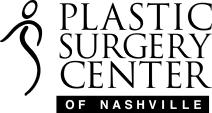The risks of smoking are well-documented. According to the Center for Disease Control and Prevention, about 20% of deaths in America are a result of smoking. Tobacco usage increases the risk for stomach, esophagus, mouth, throat, and lung cancers. Smoking also increases the risk factor for other health issues like stroke, emphysema, bronchitis, aneurysms, and heart disease.
There are good reasons to quit smoking. If you are planning a surgical procedure, including any plastic surgery like a facelift, breast augmentation or tummy tuck, you have an added incentive to stop smoking. Beside the other risks, smoking can compromise your desired results for the procedure and increase the risk for unwanted complications.
Smoking and Surgery Risks
Smoking constrains the binding of oxygen and constricts your blood vessels, which will reduce the oxygen levels available to your blood cells. Without a sufficient amount of oxygen, there will be limits to your wound healing capacity after surgery. The risks for smokers after surgery include wound separation, raised, red scars, and skin death (skin necrosis). Also, smokers have a higher risk of infection after surgery and are more likely to experience complications from anesthesia. Smokers are also at a higher risk to be admitted to the intensive care unit after surgery, experience longer hospital stays, are readmitted at a higher rate, and die at a higher rate across all areas of surgery.
Because of these risks, many board-certified plastic surgeons have strict guidelines when it comes to performing surgery on patients who smoke. These surgeons commit their practice to the safety of their patients above all and want to ensure the best possible chance of achieving the best possible results.
Smoking and Plastic Surgery Recovery
Any surgical operation depends on good blood supply. This proper blood flow is important to experience the necessary recovery after your surgical procedure. Plastic surgery alters the shape of different body parts as its name indicates. The term ‘plastic’ derives from the Greek word ‘plastikos’ or mold. Your surgeon needs to move tissue or skin to accomplish these alterations which reduce the blood supply to a certain degree, but not enough to interfere with the natural healing process, normally.
For example, during a tummy tuck, blood vessels which naturally carry blood to the abdominal skin are divided so the skin can be moved around to deliver a flat, taut tummy. An important component to the surgery is to leave enough blood vessels intact to ensure proper healing of the skin. If the blood flowing to the skin is not adequate, the skin tissue will lack oxygen and not heal properly or die. This oxygen deprivation can also happen during breast surgery, a facelift or other reconstructive surgeries.
Why Smoking Hinders Plastic Surgery Outcomes
Surgeons perform plastic surgery at the limit of normal blood circulation for the skin and other tissues. For the surgery to be successful, enough blood vessels must be left intact, and enough blood must flow these blood vessels. There are certain things which can limit blood flow, but none more serious than smoking tobacco. Nicotine is the most dangerous element of smoking, but hydrogen cyanide and carbon monoxide are not helpful as well.
More Pain Medication and Anesthesia Necessary
A 2015 study confirms smokers require 33% more anesthesia for surgery than non-smokers and 23% more pain medication after surgery to attain the same results. The study also indicates non-smokers exposed to second-hand smoke require 20% more anesthesia and 18% more pain medication than non-smokers not exposed to second-hand smoke. These results make it evident how dangerous smoking is to any surgical procedure.
Nicotine and Healing
As stated earlier, nicotine constricts blood vessels (makes them smaller) and restricts blood flow. Nicotine can also increase the risk of blood clots because of the smaller vessels. These serious complications may results in wounds not healing, a decrease in blood supply and other devastating complications.
Many patients ask us about vaping. They are under the impression it is a healthy alternative to smoking and may be appropriate before and after surgery. This impression could not be further from the truth. Vaping with nicotine is worse than tobacco smoking.
Hints to Help You Stop Smoking
While some patients can quit cold, others require help. Many aids are available to help a patient stop smoking.
Nicotine replacement products are designed to relieve the symptoms of nicotine withdrawal by helping you decrease amounts of nicotine gradually and eliminate the other harmful chemicals in tobacco. These aids include over-the-counter lozenges, gums, and patches as well as prescription inhalers and nasal sprays.
These nicotine replacement products are not suitable before or after surgery, because they contain nicotine and all it’s risks. Make sure you inform your plastic surgeon if you are taking any nicotine replacement products.
Prescription drugs are also available to help patients quit smoking. Bupropion (sold under brands Zyban and Wellbutrin) can help lessen severe nicotine cravings and symptoms. Chantix (varenicline tartrate) targets nicotine receptors to prevent the nicotine from reaching the brain. It’s advisable to start Chantix treatment a week before you plan to quit smoking.
Other treatments like acupuncture and hypnotherapy, as well as online or community support groups, have had success with many patients.
All available products to help you quit smoking have their unique advantages and disadvantages. Finding the method which works best for your lifestyle can guarantee you quit for good. If you are a smoker, make sure you tell your plastic surgeon during your consultation.
At Plastic Surgery Center of Nashville, we recommend patients abstain from smoking two weeks before and four weeks after surgery. This cessation will help ensure your desired results and may even put you on the path to quit smoking for good.
To learn more about our plastic surgery and cosmetic procedures, call us at (615) 467-6777 or contact us today.
